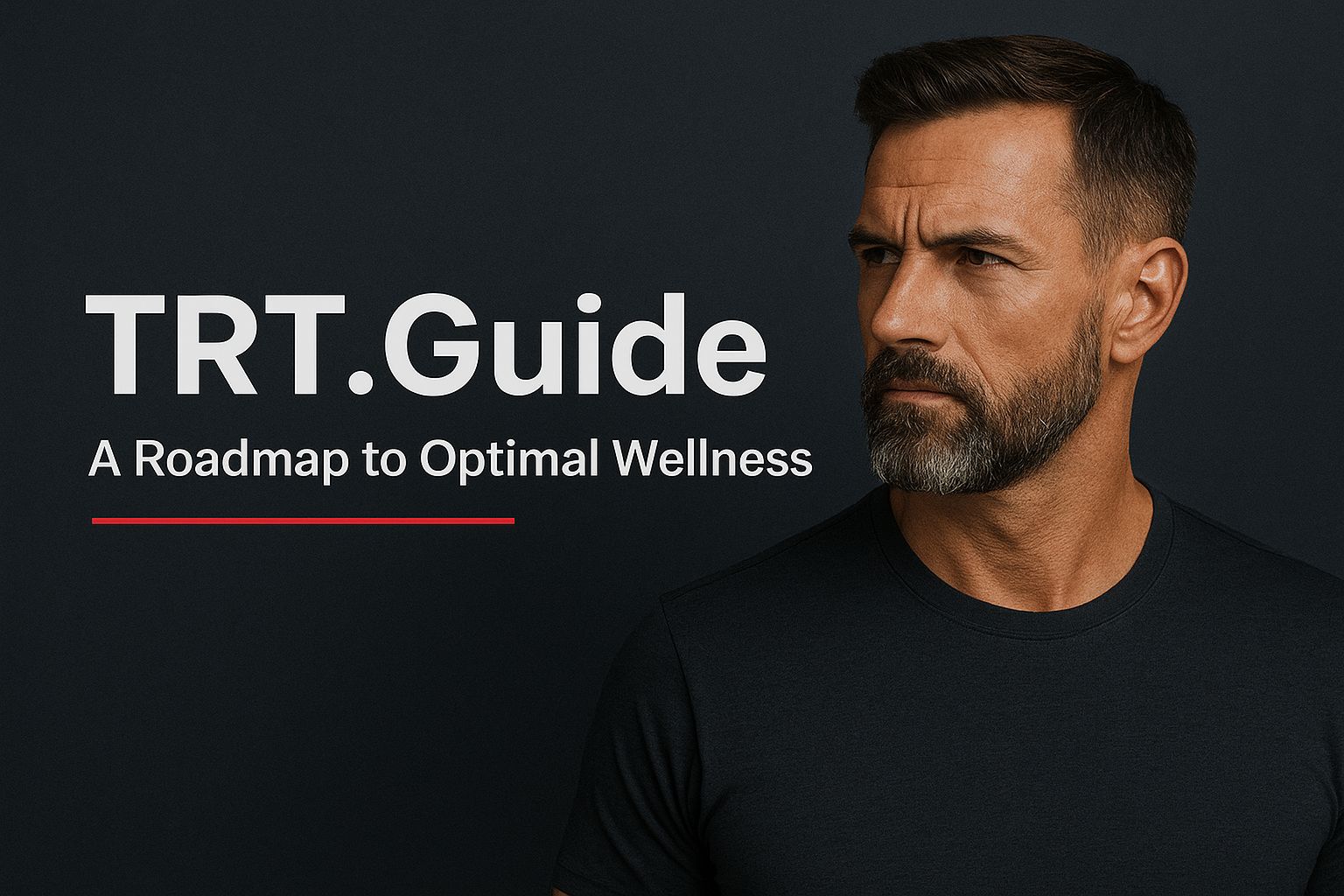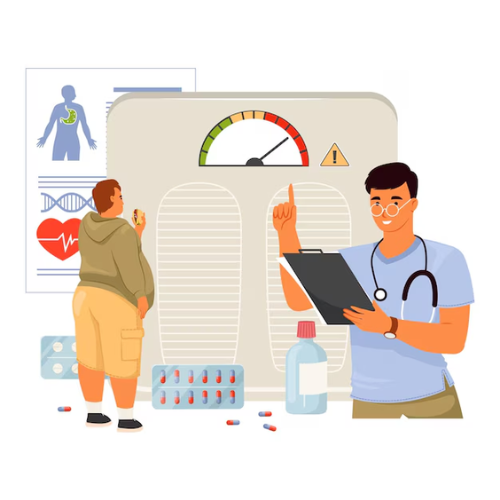Testosterone replacement therapy (TRT) has been sought for a great deal in the treatment of men with low testosterone levels. It is seen to be able to provide one with greater energy, more balanced mood, and overall happiness through life. But besides, people wonder most about the side effects of such treatment as being affected by high blood pressure. Those who will decide to undergo the treatment of testosterone replacement and will, therefore, take a clear understanding of the disease and its relation to testosterone.
If you have other chronic conditions such as obesity, diabetes, or heart problems, you must first discuss these matters with the health provider before you start taking TRT. Also, your provider will probably advise some changes in your daily life such as, for instance, diet reform and a schedule of regular physical exercise to reduce the risks of high blood pressure. In this article, I will provide you with the details of the relationship between testosterone therapy and high blood pressure, so you could have a comprehensive understanding of the options for your treatment.
General Information on Testosterone Replacement Therapy
Insufficient in the level of hormone production in the mens body was compensated by the intake of the testosterone people did not produce. So, one of the clues of too little energy, frequent mood changes, and disinterest in sex low libido was treated. The modes of TRT are injections, patches, gels, and pellets each having its own benefits.
The exposure of injections offers the most efficient way of using the hormone among the four. Patches and gels involve slow and gradual absorption of the hormone. On the other side, pellets are fixed under the skin and they provide the body with the required amount of testosterone at regular intervals, so there is little need for repeat treatments. The healthcare professional will suggest the most appropriate kind according to your lifestyle and preference.
While Testosterone Replacement Therapy has its share of advantages, it is important to keep in mind the side effects that this type of treatment can entail. It has been reported in the scientific field that TRT may lead to an increase in blood pressure and even considerably have a bad influence on cardiovascular health in several people. A research paper published in the Journal of Clinical Endocrinology & Metabolism, for example, reported the relationship between testosterone treatment and raised systolic blood pressure in certain groups.
The critical factors that can make blood pressure fluctuate during the TRT process are the quantity of treatment, the method of giving, and the diseases that were already existing. The overuse of the medication, most of the time, is the cause of higher blood pressure. In return to this, the uniqueness of the patient will give various results, thus necessitating regular medical checkups with the medical professional, to see when there is a need for the adjustment of dosages.
If you have any other health issues like obesity, diabetes or heart problems, it would be very important to first discuss these matters with the health provider before you start taking TRT. Your provider might be able to suggest some lifestyle changes such as diet reformation and a regular physical exercise routine to reduce the risks of high blood pressure.
Checking your blood pressure on a regular basis during testosterone therapy is of utmost importance. Before treatment, some doctors recommend checking blood pressure, and then the frequency should be once a month for six months, and there should be a quarterly for the next period. This will ensure that all the necessary steps are taken care of properly in case of any severe change, to maintain, or enhance your good health in a timely manner.
A consultation of a specialist in the field of endocrinology or urology is welcome as they will have the expertise to give advice that takes into account the specific health needs of the individuals. Knowledge of the connection between TRT and blood pressure will give you the ability to make the right decisions about your treatment plan.
Understanding Blood Pressure
The term “blood pressure” denotes the force with which the blood flows against an individual’s arteries’ walls. Blood pressure monitoring is crucial not only for cardiovascular fitness issues but it is also useful to recognize the risks of heart disease and stroke.
Definition and Importance
Blood pressure is made up of systolic pressure and diastolic pressure from your heart. The first is the pressure that occurs when the heart contracts, and the latter is the pressure that happens when the heart muscle is relaxed.
These ratings are in the unit of millimeters of mercury (mmHg) and are noted as systolic over diastolic (e.x. 120/80 mmHg). Knowledge of your blood pressure levels will give you insight into your health condition, will prompt you if you need to change anything in your life, or maybe only medical treatment will answer your needs.
The perfect blood pressure reading is 90/60 mmHg to 120/80 mmHg. Unchecked or extremely high blood pressure, also known as hypertension, can lead to some very dangerous complications such as a heart attack, a stroke, and kidney damage.
Moving on, regular blood pressure measurement gets you the ability to know early about changes which is very important especially when you are receiving treatments like testosterone replacement therapy (TRT). You being aware of your condition at each moment helps you to have the needed dialogue with health workers, and this makes you follow the advice that they will give you to your satisfaction and improvement of your treatment.
Factors Causing Gradients in Blood Pressure
For that reason, there are many reasons wherein the pressure in the blood changes. The habit of a persons lifestyle has a good way of facilitating blood pressure control and among them are proper feeding habits, and a regular exercise regime. High salt consumption may lead to an increase in blood volume, hence blood pressure might move up. Besides, physical exercise leads to the muscles in the heart being strong making the heart function properly as well as improving the circulation of blood, and hence it is always recommended as a great way of lowering blood pressure.
Conditions that one has lead to consistent blood pressure. Diseases such as obesity, diabetes, or kidney disease trigger elevated readings. Moreover, drugs, even those for TRT, have an effect on the patient’s blood pressure. Differences in the dosage, means of administration, and the outcome of the treatments can all be reasons for the various levels of blood pressure.
Furthermore, genetics have a significant influence, and the family history of hypertension has a positive effect on the possibility of a person experiencing high blood pressure. Also, another factor, besides the fact that getting older means higher blood pressure, can be the person’s age as the majority of the population is above 50 years old. Regular taking of one’s blood pressure and open discussions of any possible concerns with the healthcare professional provide a good solution to the effective management and treatment of the condition.
The Relationship Between Testosterone and Blood Pressure
Testosterone has a variety of biological mechanisms by which it affects blood pressure. Knowledge of these effects is essential for those individuals who are on the replacement therapy for testosterone (TRT).
Research Findings
Researchers are not unanimous in their findings around the relationship between testosterone and blood pressure. The evidence is contradictory with some research findings showing that the use of TRT is associated with increased blood pressure among some groups. A good instance to affirm this point is the discovery made by a 2013 study that men under TRT underwent significant increases in both systolic and diastolic blood pressure within the first three months of the treatment.
On the other hand, there are studies that advocate for the benefits of testosterone use in lowering blood pressure. To this end, a 2014 meta-analysis emphasized that low testosterone often contributes to high blood pressure in men, which could be normalized using TRT. It is very important to remember that one’s reaction of taking TRT will hugely differ and it will not only be age and dosage that will influence one’s decision but also other aspects such as the medical conditions already present. Constant health check-ups during the use of testosterone are vital to keep track of these changes.
Mechanisms of Action
Testosterone has several mechanisms of action in its relationship with blood pressure. To start, it is good to tell that it makes endothelial cells to be fully functional and, as a result, they become better in controlling the tone and flow of blood in the blood vessels. The second way by which testosterone can impact the blood pressure is through having a direct influence on the renin-angiotensin system, a hormonal system that regulates blood pressure, thereby provoking the blood pressure levels to rise, fall, or remain steady.
Additionally, testosterone also has an impact on the balance of sodium and fluids, which in turn, lead to an increased blood volume and hence, higher blood pressure. Besides, testosterone may also have an effect on lipid and glucose levels, which can subsequently cause harm to the heart. Only through knowing these things can healthcare providers select the most suitable treatment option out of good TRT programs and thus can efficiently adjust the BP and the risk of heart disease.
Potential Risks of Testosterone Replacement Therapy
A related issue is the possibility of cardiovascular health damage caused by testosterone replacement therapy (TRT). The understanding of these issues will offer insights into the appropriateness of TRT administration for one’s particular case.
Effect of Cardiovascular Health
Testosterone has an impact on cardiovascular health through various mechanisms. There are some studies indicating that TRT treatment can result in higher blood pressure in some individuals, which in turn is associated with the risk of having heart diseases and strokes. On another note, the mode in which the testosterone hormone operates is by promoting proper functioning of endothelial cells that are responsible for muscle relaxation and ultimately reduction of blood pressure. As the results of different studies are inconclusive, therefore there is the need for further research and continuous monitoring of TRT to a well-formed conclusion.
Regular cardiovascular examinations are beneficial especially if the case is that a person is currently under TRT, and hence it will be easy to follow the changes in blood pressure and the condition of the heart in general. If any side effects emerge, the health practitioner holds the option of lowering the dosage or changing the way the drug is administered. Continuous record of blood pressure both before, during, and after the therapy will ensure that any significant variations will be dealt with immediately, hence reducing the risks of severe complications.
Factors affecting Individual Risk
Other factors that may determine the danger level of testosterone replacement therapy for an individual are individual factors. Those factors that are inherent in the person, such as having been ill for a long time, increase the possibility of cardiac issues. The pre-existing diseases that usually lead to higher cardiovascular risks like obesity, diabetes, and hypertension, language, lifestyle, and genetic advantages or disadvantages are responsible for deciding the body’s reaction to TRT negatively or positively.
Lifestyle factors can cause remarkable changes to the effects of TRT on blood pressure status like diet, activity, and smoking habits, which can either worsen or attenuate the situation. Prior to the medication regime, those patients who suffer from heart problems should talk to their doctors about TRT and the negative effects it could bring on to their bodies.
Regular visits to the doctor are of utmost importance as this will lead to the timely recognition of possible problems and, consequently, will be able to make the necessary alterations that provide the maximum effect with the minimum of risks. Tailoring TRT to match the current medical background of a person is the main factor which will make it a safe and effective treatment.
Recommendations for Patients
Constant flesh and accurate consultations should play a significant role in blood pressure control while using testosterone replacement therapy (TRT). When these suggestions are adhered to, they can help to keep the heart in good condition.
Checking Blood Pressure
It is very important that you have a regular follow-up of your blood pressure while you are being treated with TRT. Write down your measurements of the blood that you are going to measure and have a look at them regularly so that you can notice any differences. The normal blood pressure level is 90/60 mmHg to 120/80 mmHg. Among the reasons for high blood pressure are stress, laziness, or wrong food choices. It is recommended to have your blood pressure checked at approximately the same time each day of the week for consistent readings.
Should the readings indicate a value exceeding 130/80 mmHg, the choice of the right way to deal with the issue can be made between you and your health care provider. You can show him/her those readings you took for advice. The consistency of the blood pressure reading during the patient’s lifestyle changes is vital for him and the doctor to make the necessary adjustments for the therapy and the lifestyle changes that come with it. By using a self-contained blood pressure monitor, the patient can make a follow-up with little difficulty and also get it right to make it easy for the specialist to digest during the visits.
Consultation with Healthcare Providers
Before you engage in any TRT action, first of all, make contact with a healthcare professional, conduct a continuous conversation with them throughout, and schedule some appointments for face-to-face health consultations and updates about your progress of the ailment. Make sure to update the doctor about your previous diseases, lifestyle, and the condition you currently have that is known to cause high blood pressure. Blood analysis might also be utilized for you to check the blood level of testosterone and your overall condition.
Also, you should converse with your doctor every few months. At such times, it will be up to both of you to decide on your treatment plan, that is if changes are needed. You could tell the doctor that you wish to be informed about the different signs and symptoms of blood pressure that can help indicate the problems. Should you get a headache, dizziness, or any other new symptoms, quickly be in touch with your healthcare provider. This is a very much proactive approach that will help in managing any adverse events that may arise very quickly and, hence, increase the safety and effectiveness of TRT..
Conclusion
Using testosterone replacement therapy can be a remarkable experience for those who suffer from low testosterone, however, one is to be watchful of such a dangerous side effect as high blood pressure. At the time of the treatment, it is critical to check your blood pressure on a regular basis. This is the only way to make sure your heart condition is under control and safe from harm.
Initiating communication with your healthcare provider about your blood pressure readings and inquiring with him/her for advice regarding the desired therapy is a way to go. Remember that the patient’s specific reactions to TRT can greatly differ due to various factors, so adopting customer-oriented care is crucial. Through staying fully informed and taking measures promptly, you can have the benefits of TRT safely and without the risks of high blood pressure.
Frequent Ask Questions
What is testosterone replacement therapy (TRT)?
With the help of TRT, doctors provide men diagnosed with low testosterone their unique treatment. The idea is that it will remove symptoms such as lack of energy, quick mood changes and reduce the desire for sex by an application of testosterone through injectable medications, patches, gels, or pellets.
How does TRT affect blood pressure?
When a person takes testosterone replacement therapy, the effect on his cardiovascular system is different from one individual to another. For example, enhancing blood pressure by a vasodilating action is one explanation, although another is the effect of dilation on blood vessels. Regular checks are necessary to determine your cardiovascular health situation.
What are the potential side effects of TRT?
Among the various adverse reactions that can result from getting TRT done, the ones that have the most probable occurrence are acne, sleep problems, an increase in blood pressure (hypertension), and changes in mood. It is of utmost importance to have these side effects checked regularly and also regularly speak to your health consultant so the treatment remains safe.
How does one take blood pressure? What do the numbers mean in a blood pressure reading?
In case of blood pressure, two kinds of numbers are used: when the heart is in a contract-stroke phase, it is called “systolic” over diastolic pressure, which is the time when the heart is relaxing. With these, the numbers can vary from 90/60 mmHg to 120/80 mmHg which are considered normal.
Why is it necessary to continuously keep the blood pressure in check during TRT?
It is important to monitor blood pressure onset during TRT as higher levels can indicate very serious problems concerning the heart and blood vessels. By regularly inspecting these issues, the doctor is able to keep everything under control and can also check if the therapy is safe and at the same time working.
What are the elements which cause the blood pressure to change in the patients taking TRT?
In the issue of blood pressure under therapy, some of the factors are given below: levels of drug intake and the mode of testosterone application, previously present diseases of the patient, way of living and individual responses to age and genetics.
In what manner can patients control their blood pressure during TRT?
Their regular routines that involve a stable and balanced diet, exercise programs with a set goal, and weight which remains the same. The patient has to be very vigilant in the prescribed treatment and, in addition, be able to discuss with their therapists.
When should patients talk to their doctor about the high blood pressure situation?
They should go to their doctor if their readings occur at or above 130/80 mmHg. Explaining the reasons for the occurrence of any problems and if any are felt makes both the drug treatment more efficient and decreases the chance of any harm.






